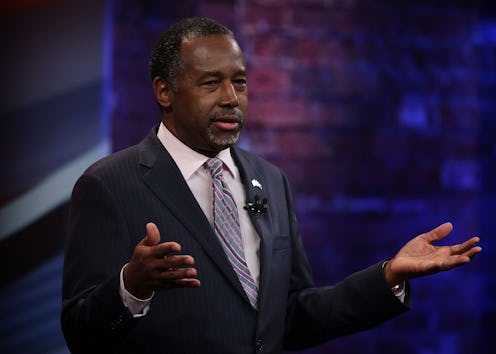News
Only A Few More GOP Dropouts To Go
The big question on everyone's mind after Donald Trump's unequivocal landslide in the Palmetto State, is simply: who will drop out of the Republican race? Former Florida Gov. Jeb Bush has already said sayonara to any possibility of winning the White House in 2016, dropping out of the running after his second fourth-place primary finish in a row. Now, the spotlight will be on Ohio Gov. John Kasich and Dr. Ben Carson, who were trailing Bush by mere fractions of a percen. Will they be able to raise enough campaign capital to continue on campaigning in what is turning out to be the most costly election cycle ever? Or will the next days bring more news of a narrowing Republican field?
Kasich finished fifth in South Carolina on Saturday, garnering 7.6 percent of the vote and zero delegates. He currently only has the support of five delegates: one from Iowa and four from New Hampshire. Aggregate national polling from the Huffington Post demonstrates that his performance in New Hampshire, where he finished second after He Who Should Really Not Be Named, has translated into the strongest upwards trajectory out of all of the remaining five candidates since 2016 began. Despite his low delegate count and an apparent lack of enthusiasm from the Republican voting public thus far, it would be folly for the lone remaining moderate, two-term governor, nine-term congressman, and old-school conservative to drop out of the race now. Whether or not Kasich can scrape together the cash is another story entirely.
Carson, on the other hand, is another story: the slow-talking surgeon finished at 7.2 percent of the vote in South Carolina and currently has only three pledged delegates to his name. Carson's campaign has been flat in national aggregate polling since the beginning of the year, and has been struggling to connect with voters — also, a lot has been going on, but you can't have forgotten his super cringey entrance at the eighth GOP debate. It remains to be seen whether or not the neurosurgeon will be able to raise enough of a war chest to keep going on, and a mass exodus of campaign staff late last year certainly can't have been good for continuity of operations at Carson Central.
It is becoming increasingly obvious that the GOP convention in Cleveland this summer will be one for the history books; the likelihood that He Who Should Not Be Named walks away from the floor with the nomination is looking more likely by the day. Insiders have been whispering about the possibility for a brokered GOP convention for the past few weeks now. In five of the contests — Colorado, Wyoming, North Dakota, Guam and American Samoa — the results of the caucus or territorial convention will not matter at all in the allocation of delegates; their delegates are essentially turned into superdelegates, but there's a catch. They are bound to vote for their preferred candidate on the form that they submitted to become delegates.
According to my calculations, that means 102 delegates in the national convention could essentially be bound to vote for candidates who are no longer in the running, adding an additional layer of confusion to what will most likely be a contested convention.
